Premium Only Content
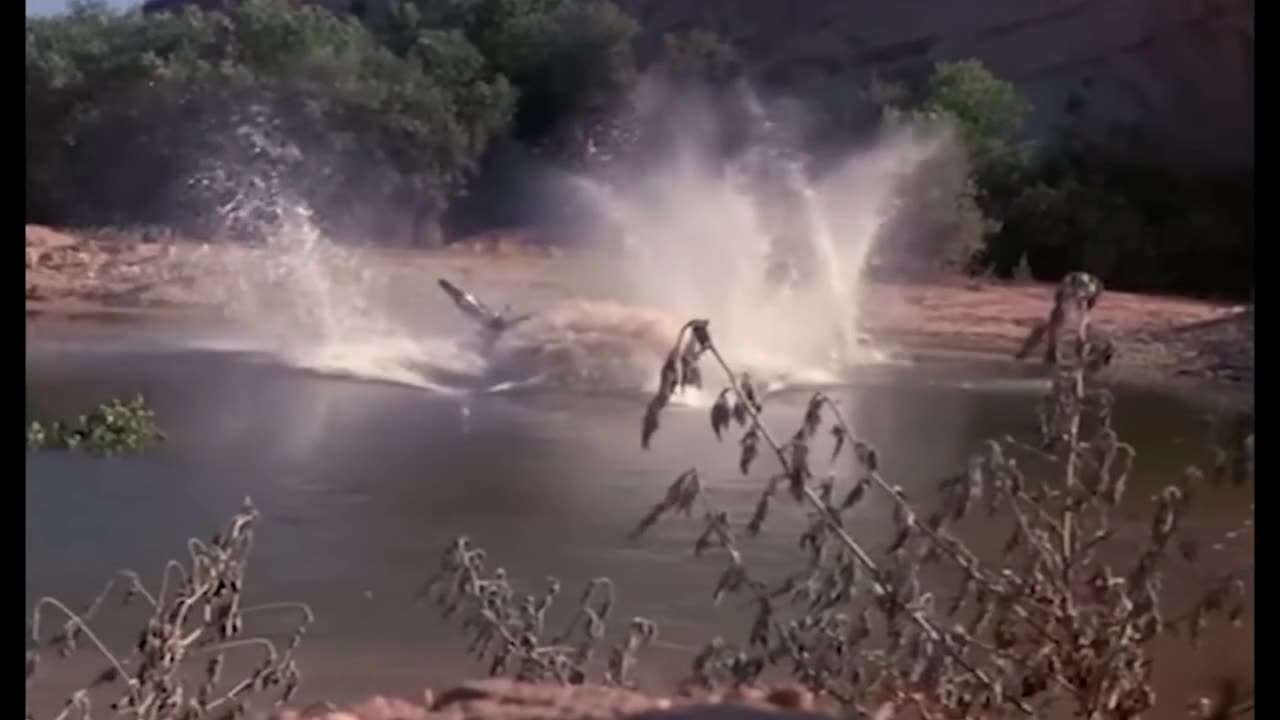
Bawitdaba Cowboy Picture Kid Rock
Bawitdaba Album: Devil Without a Cause (1998)
Cowboy Album: Devil Without a Cause (1998)
Picture Album: Cocky (2002)
by Kid Rock
Bawitdaba is a reworking of the 1979 rap landmark "Rapper's Delight" by The Sugarhill Gang. That song uses some alliterative wordplay in the refrain:
Bang bang, the boogie to the boogie
Say up jump the boogie to the bang bang boogie
Rock transforms this into a hardcore scream that sounds like "Bawitdaba da bang de bang diggy," thus the title is "Bawitdaba."
The images in this song are filled with snapshots from Kid Rock's life: topless dancers, crackheads, Southern Comfort, crooked cops, etc. It plays to his origin story and his reputation as a blue-collar rapper close to his roots. Regarding the meaning of the song, he told Q: "I guess that song is about finding good in all people: crackheads, whores, anyone. Instead of looking down on these people, why not try to find some good in them? Although if somebody steals my car to buy crack, I'm gonna kill the motherf--ker."
At concerts, Rock used this as his opening number, letting his DJ, Uncle Kracker, hype the crowd for a while before he made his grand entrance. His opening line, "My name is kiiiiiiiid...," would trigger some pyro. Perhaps his most memorable performance was at Woodstock 1999, where he made a huge impact.
For many, Bawitdaba was their introduction to Kid Rock. He was a big name in the Detroit music scene and got a deal with Jive Records, which released his debut album in 1990. That pairing didn't work, and the label dropped him soon after. Over the next several years, Rock released two albums independently and kept at it, refining his unrefined style and staying true to his roots as a midwestern white trash rap rocker. He drew huge crowds in the Detroit area, but wasn't able to expand his territory until his signed with Lava Records, which released his album Devil Without A Cause in 1998. Lava was a subsidiary of Atlantic, and had the promotional might to get Kid Rock played on a handful of radio stations around the country, and on MTV with a video for "I Am the Bullgod."
MTV thrives on the eccentric, and viewers had strong feelings about this stubbly white rapper who showed up out of the trailer park with his obscene 3' 9" hype man, Joe C. "Bawitdaba" got a lot of spins on the network, and earned Rock VMA nominations for Best New Artist and Best Rock Video. At the ceremony, and orchestra played "Bawitdaba" and host Chris Rock was introduced with the opening line: "His name is Chriiiis... Rock." Kid Rock later performed the song, sharing the stage with Aerosmith and Run-D.M.C.
The many who hated Kid Rock watched anyway, taking in the spectacle. His fanbase was energized by the vitriol against him and grew more fervent in their following. The album ended up selling over 11 million copies and Kid Rock maintained a legion of fans throughout his career.
Kid Rock livened up the Super Bowl halftime show in 2004 when he took the stage and blasted into this song. That halftime show is far better remembered for Janet Jackson's "wardrobe malfunction."
Uncle Kracker was in the studio with Kid Rock when Rock came up with the Sugarhill Gang-inspired chorus. "And then it was just about doing verses and arrangements at that point," he told Songfacts in a 2023 interview. "But he just hit that 'Bawitdaba,' which was really an old-school rap thing from the Sugarhill Gang. He made it into this hard, headbanging thing. It was so cool to us in the studio."
According to Kracker, their rap backgrounds gave them the freedom to experiment without any regard for the pesky legalities. "There weren't very many rules for us at all, because coming up as rappers, we'd been sampling and doing that stuff for years," he continued. "The aftermath for the lawyers to figure that stuff out was probably a s--tshow, but for us, we were just writing and making what felt good to us at the time. Nothing mattered other than feeling good."
In "Cowboy", Kid Rock raps about heading west to conquer California, envisioning himself as a trailer park cowboy riding into town with a bottle of beer and a bad attitude. He makes it clear he's no N.W.A.:
I'm not straight outta Compton, I'm straight out the trailer
The video for Cowboy is an homage to the movie Smokey And The Bandit. Directed by Dave Meyers, it culminates in a showdown between Rock's 3'9" sidekick Joe C. (R.I.P.) and '80s television star Gary Coleman, who is also rather short. According to Coleman, Joe C. was rather pugnacious from the moment they met, telling Coleman he could beat him up in real life. Gary says he went easy on him because Joe said he had medical issues and bruised easily.
And to raise the bonkers factor even higher, adult film star Ron Jeremy appears in the video as the piano player.
One of the lines in the song is: "Start an escort service for all the right reasons." When asked what the right reasons are, Rock has said, "To get paid. To make money."
Cowboy was a breakthrough for Kid Rock, who released his debut album on Jive Records in 1990 but was soon dropped by the label. He issued two independent albums that flopped, but built a substantial following in the Detroit area. As a rap-rocker with a white trash aesthetic who washed out of one record company, he wasn't very attractive to record labels and made no effort to get in their good graces, maintaining his I-don't-give-a-f--k attitude in his music and his personal life.
At this time, to really see what Kid Rock was about, you had to go to Detroit, where he could pack 1000+ capacity venues. After listening to one of his CDs, that's what Jason Flom, had of the Atlantic imprint Lava Records, did. Flog saw Rock work his hometown crowd into a frenzy and was convinced he could break through on a national level. Flom signed him to Lava as-is, never asking him to tone it down or change his style. His first Lava album was Devil Without a Cause, released in August 1998. It took a while, but Flom was able to get the singles "I Am the Bullgod" and "Bawitdaba" played on MTV and on some radio stations. Rock slowly built a national audience, and in July 1999, got a lot of exposure at the third Woodstock festival. "Cowboy" was released as a single and took off, getting substantial airplay on rock radio and even cracking the Hot 100 - his first appearance on that chart. The song peaked at #82 on October 30, 1999. Devil Without a Cause ended up selling over 11 million copies in America.
The "uhhh" that comes in around the 2:50 mark of Cowboy is a sample from the song "Different Strokes" by Syl Johnson. Gary Coleman, who appears in the video, starred in the TV series Diff'rent Strokes.
Kid Rock shared the writing credits on Cowboy with his co-producer John Travis, and with members of his Twisted Brown Trucker Band: Matthew Shafer (Uncle Kracker) and James Trombly.
Rock did "Cowboy" and "Bawitdaba" when he performed at the Super Bowl halftime show in 2004 - the one with the famous "wardrobe malfunction."
Uncle Kracker, Rock's DJ, hated Cowboy at first and dismissed it as a novelty tune. He begged the rapper to leave it off the album until Rock worked his magic on it.
"It grew on me and it meant more than the novelty by the time it was finished," Kracker admitted in a 2023 interview. "He had a good way of massaging things to make them cooler than they started out. Another song that changed my life. So, I love it now, but I hated it back then."
Kid Rock wrote "Picture", which finds him discovering a picture of his ex and asking her to come back to him. Rock proudly indulged his desires with the many groupies available to him, but this song shows his sensitive side, as he's feeling unfulfilled. When Sheryl Crow comes in for the duet, she explains why she left: He was cheating on her. There rumors that Rock and Crow were dating in real life, but they both denied it.
Sheryl Crow's contribution was almost kiboshed over a dispute between her label, A&M, and Rock's label, Atlantic. Rock ended up recording a version with Allison Moorer that was released as a single, but the version on the album featured Crow, and she's also in the music video. Some radio stations played the official single with Moorer, but most played the version with Crow because she was a bigger name. When the song charted, Billboard faced a conundrum because it wasn't clear who should be credited with Rock. They ended up listing the artist as "Kid Rock featuring Allison Moorer or Sheryl Crow."
Picture was quite a departure from the rap-rock songs Kid Rock was known for, but it wasn't his first foray into country music: His 1999 single "Only God Knows Why" is a country ballad and was the biggest hit from his breakthrough album Devil Without A Cause, going to #19 on the Hot 100. "Picture" became the biggest chart hit of his career, going to #4. Rock's DJ, Uncle Kracker, had an easy listening hit of his own with "Follow Me" in 2000.
Since the success of "Picture," Kid Rock has had numerous duet partners from the country music world, including Kellie Pickler, Martina McBride, and Miranda Lambert. All of whom will appear in Anderson SC on July 26th and 27th. I'd label the affair a high probability for deep state actors to make some stupid racial play... at the play... YOU'VE BEEN WARNED.
Yes, this song does sound a lot like The Golden Girls Theme. So much so, that visitors to our message boards asked if it was a remake.
Kid Rock and Crow are all smiles in the JB Carlin-directed clip, which has the pair recording in the studio and strolling around outside Rock's home in Clarkston, Michigan. According to VH1's Pop Up Video, Rock's then-fiancee Pam Anderson didn't like the idea of her guy hanging out with his ex and held up production with a two-hour phone call to Rock.
Kid Rock was one of the last people you would expect to land an easy-listening pop hit. His image was (and still is) raw and redneck, very aggressive with elements of rap. His previous releases made little effort to appeal to anyone outside his fanbase; before "Picture," his previous single was "You Never Met A Motherf--ker Quite Like Me."
This is where Sheryl Crow comes into the, er, picture. In stark contrast to Rock, she was a radio darling, pure pop for playlists polarized by hip-hop and nu-metal. Likable and thoroughly respected, anything with her name on it was guaranteed a listen by program directors. She effectively countered the aversion to Kid Rock, earning the song exposure. Rock didn't make a habit of this: he went right back to his hard-core style, to the delight of his fans. His next big collaboration was with someone a bit more controversial than Crow: R. Kelly, whom he teamed with on "Rock Star" in 2007.
Picture was Sheryl Crow's second-most successful single, behind "All I Wanna Do."
-
 19:33
19:33
Psychological operations
10 days agoThe Miseducation Of Lisa Simpson S31e12
32 -
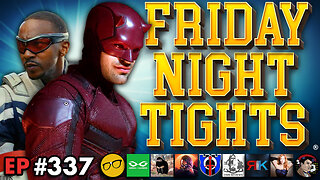
Nerdrotic
5 hours ago $13.52 earnedDaradevil Born Again, Comics Industry CRASH, Neu-Hollywood REBUILD | Friday Night Tights #337
45K10 -
 LIVE
LIVE
Glenn Greenwald
1 hour agoThe Future of Gaza With Abubaker Abed; Journalist Sam Husseini On His Physical Expulsion From Blinken’s Briefing & Biden’s Gaza Legacy | System Update #391
2,775 watching -
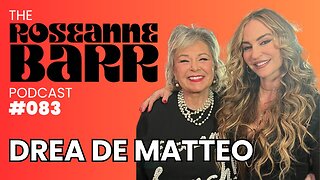 LIVE
LIVE
Roseanne Barr
4 hours agoWe are so F*cking Punk Rock! with Drea de Matteo | The Roseanne Barr Podcast #83
1,879 watching -
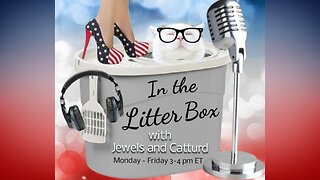 1:04:58
1:04:58
In The Litter Box w/ Jewels & Catturd
1 day agoNo Tax On Tips! | In the Litter Box w/ Jewels & Catturd – Ep. 722 – 1/17/2025
108K28 -
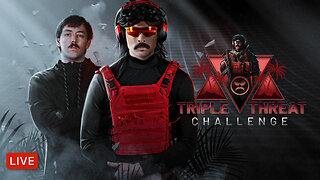 5:35:39
5:35:39
Dr Disrespect
9 hours ago🔴LIVE - DR DISRESPECT - WARZONE - CRAZY CHALLENGES
139K29 -
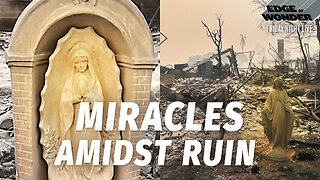 LIVE
LIVE
Edge of Wonder
5 hours agoLA Fire Updates: Miracles Amidst the Devastation
670 watching -
 54:54
54:54
LFA TV
9 hours agoBanning Mystery of the Ages | TRUMPET DAILY 1.17.25 7pm
4.1K1 -
 LIVE
LIVE
2 MIKES LIVE
2 hours ago2 MIKES LIVE #168 Open Mike Friday!
203 watching -
 1:05:11
1:05:11
Sarah Westall
3 hours agoMysterious Fog and California Wildfires Both Contain Dangerous Elements w/ Dr Robert Young & Hazen
6.64K3